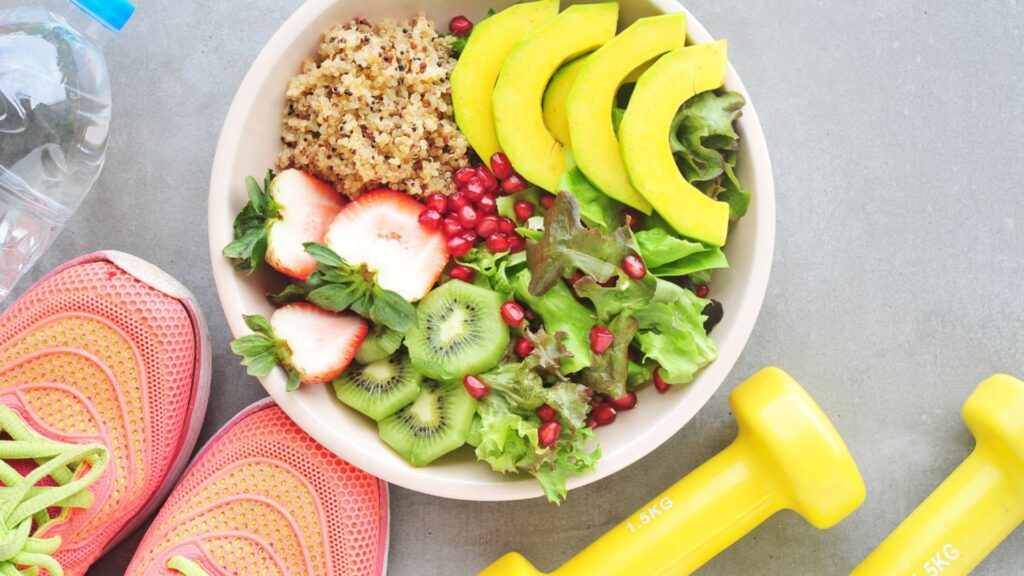Top Sports Nutrition Tips for Better Performance and Recovery
Proper sports nutrition is crucial for enhancing athletic performance and ensuring speedy recovery. The right balance of nutrients fuels your body, supports muscle growth, and helps with efficient recovery. Here are some essential sports nutrition tips to help you maximize your potential:

Prioritize Carbohydrates for Energy
Carbohydrates are the primary energy source for athletes. They fuel muscles during intense activities and should form the base of your meals. Opt for complex carbs like whole grains, sweet potatoes, and fruits to provide long-lasting energy for training and competitions.
Tip: Aim to consume carbs both before and after exercise to fuel your workout and replenish glycogen stores afterward.
Incorporate Protein for Muscle Repair
Protein is essential for muscle recovery and growth. Eating protein-rich foods after a workout helps repair the micro-tears in muscles that occur during training. Include lean sources like chicken, fish, eggs, beans, and plant-based options such as tofu and lentils.
Tip: Consume 15-30 grams of protein within 30-60 minutes after your workout to optimize muscle repair.
Stay Hydrated
Hydration plays a critical role in maintaining endurance and preventing cramps or injuries. Athletes lose water through sweat, which can lead to dehydration and decreased performance. Make sure you’re drinking enough water before, during, and after exercise.
Tip: For prolonged activities, drink electrolyte-rich fluids to replenish lost minerals like sodium, potassium, and magnesium.
Use Fats Wisely
Healthy fats provide long-lasting energy, especially during lower-intensity endurance sports. Include sources of unsaturated fats such as avocados, nuts, seeds, and olive oil in your diet to support overall health and sustain energy levels.
Tip: Avoid trans fats and focus on healthy fat sources to support your cardiovascular system and brain function.
Fuel with Pre-Workout Snacks
Eating a light snack about 30-60 minutes before your workout can improve performance by boosting energy levels. Choose foods that are easily digestible and rich in carbohydrates, like a banana with peanut butter, oatmeal, or yogurt with berries.
Tip: Avoid heavy meals right before exercise, as they can cause discomfort or sluggishness.
Post-Workout Recovery Meal
The recovery window is crucial for replenishing glycogen stores and repairing muscle tissue. Your post-workout meal should include both protein and carbohydrates to aid in recovery. This combination restores energy levels and accelerates muscle recovery.
Tip: An example of a good post-workout meal could be a grilled chicken sandwich with whole-grain bread or a protein smoothie with fruits.
Eat Small, Frequent Meals
Athletes benefit from eating smaller, balanced meals throughout the day to keep their metabolism active and energy levels consistent. This helps maintain muscle mass, provides a steady flow of nutrients, and prevents overeating.
Tip: Aim to eat every 3-4 hours, incorporating a balance of proteins, fats, and carbs in each meal.
Don’t Forget Micronutrients
Vitamins and minerals are essential for supporting overall health, bone strength, and energy production. Ensure you’re getting enough iron, calcium, vitamin D, and B vitamins, which are particularly important for athletes.
Tip: Eat a variety of fruits and vegetables to cover your micronutrient needs, and consider supplements if necessary under professional guidance.
Embrace Rest Day Nutrition
Nutrition on rest days is just as important as on training days. Focus on consuming nutrient-dense foods that help the body recover fully. Lean proteins, healthy fats, and vegetables are excellent choices to support muscle recovery while reducing the risk of inflammation.
Tip: Avoid overeating on rest days, but continue to maintain a balanced diet to support overall recovery.
Monitor Your Nutrition and Adjust as Needed
Every athlete’s nutritional needs differ based on their sport, goals, and body type. Track your food intake and performance to understand what works best for your body. Make adjustments based on how you feel during workouts and competitions.
Tip: Consult a sports nutritionist to fine-tune your diet and ensure you’re meeting your specific performance goals.
Conclusion
Optimal nutrition is the cornerstone of athletic success. By focusing on balanced meals, proper hydration, and timely intake of carbs and protein, athletes can significantly enhance their performance and recovery. Make sure to listen to your body, adjust your nutrition accordingly, and consult professionals when needed.



